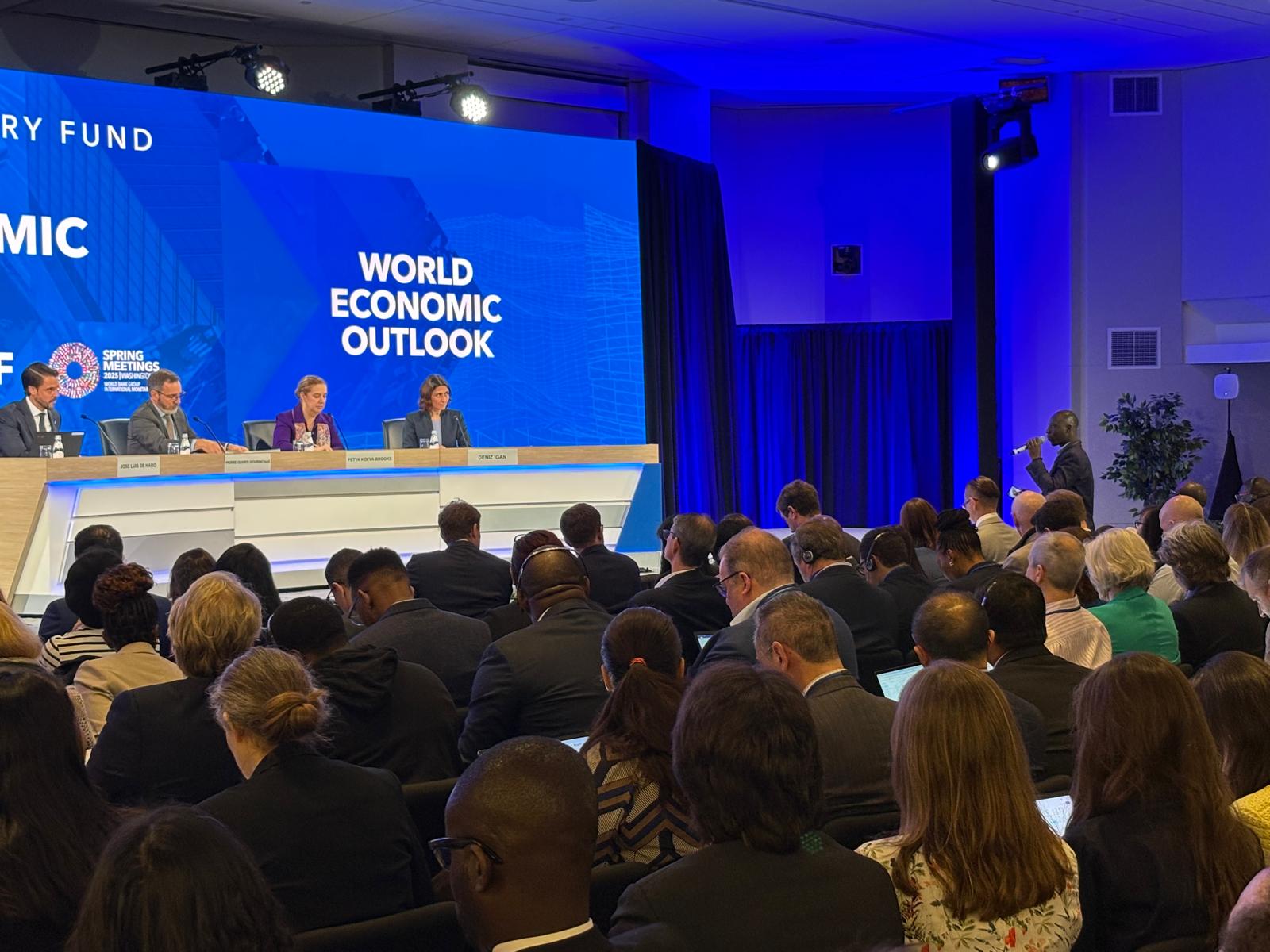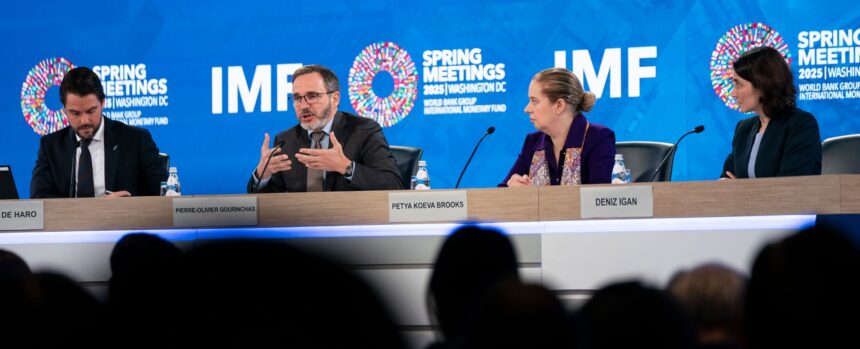The International Monetary Fund (IMF) has asked African governments to utilise their growing working-age population to develop the economy.
“In Africa’s case, what we see is a demographic dividend from a young population,” said, Deniz Igan, Division Chief, Research Department, IMF.
“… and the question then comes how best to leverage that, how must we use that and challenge it to grow,” she quizzed, urging structural reforms, investments in healthcare and education and deepened international cooperation.
Ms. Igan said this in response to a question posed by the Ghana News Agency on the back of the release of the April 2025 World Economic Outlook (WEO) report by the IMF.

The event forms part of a series of activities for the 2025 Spring Meetings – a joint event by the IMF and the World Bank Group (WBG).
The report, titled, “A Critical Juncture amid Policy Shifts,” projects a 0.4 per cent decline in Sub-Saharan Africa’s economy to 3.8 per cent in 2025, expecting an improvement to 4.2 per cent in 2026.
Pierre-Olivier Gourinchas, IMF Chief Economist, said the region improved significantly last year to four per cent, but the decline in growth for 2025 “is in line with a softer global outlook.”
“We are seeing the same forces that played in the region, as we are seeing more globally, and a downturn in the double division of production that is of dissimilar magnitude about 0.4 per cent,” he said.
The report projects a 2.8 per cent global growth in 2025 and three per cent in 2026, as the global economy entered a phase of heightened vulnerability, marked by tightening trade tariff tensions and financial conditions.
Emerging Market and Developing Economies (EMDEs) are projected to slow to 3.7 per cent in 2025, before picking up slightly to 3.9 per cent next year, while 1.4 per cent growth was expected for Advanced countries in 2025.
“The path forward demands clarity and coordination. Countries should work constructively to promote a stable and predictable trade environment, facilitate debt restructuring, and address shared challenges,” said, Mr. Gourinchas.
He also recommended addressing domestic policy and structural imbalances, to ensure internal economic stability.
“This will help rebalance growth inflation trade-offs, rebuild buffers, and reinvigorate medium-term growth prospects, as well as reduce global imbalances,” the IMF Chief Economist, said.
GNA.














